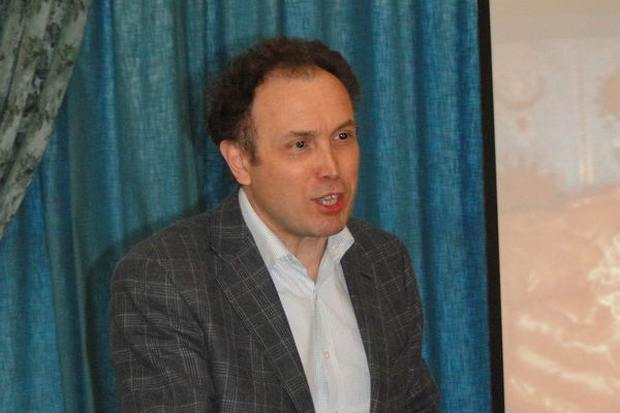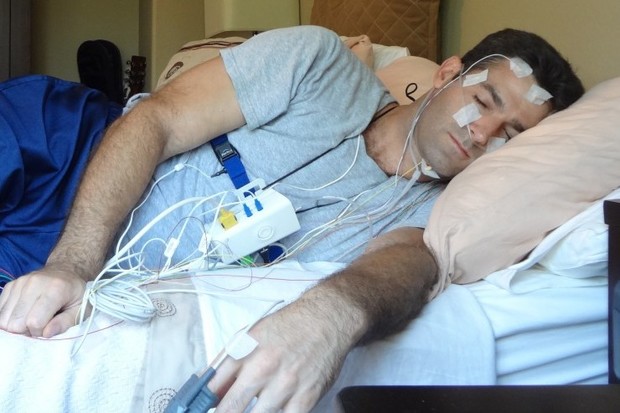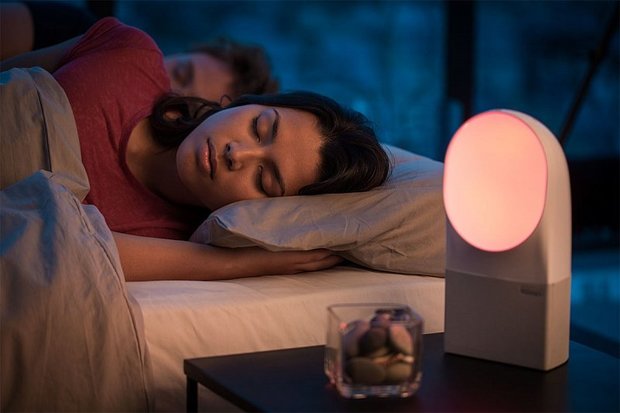''Don't sleep, you may die!'' Drivers who fall asleep at the wheel to be treated in Tatarstan
How the Tatar cuisine has made sleeping behind the wheel one of the features of the region
Drivers who fall asleep at the wheel will be treated in Kazan. According to a study conducted by the department of neurology, neurosurgery and medical genetics at the Kazan State Medical University, the problem of so-called sleep apnea in Tatarstan is extremely common, and many accidents occurred due to this reason. Realnoe Vremya spoke to the author of the study, head of the department at KSMU, a somnologist Eduard Yakupov, who said that the peculiarities of the national cuisine are to blame that Tatarstan citizens fall asleep at the wheel. Who are most susceptible to the disease and on what to spend money to learn to sleep at night — read in the material of Realnoe Vremya.
''It is a sunny day, dry road and suddenly, inexplicably, a driver drives into the oncoming lane and kills himself''
The pilot project ''Don't sleep at the wheel'' has been launched with the participation of Healthcare Department in Kazan at the Ministry of Health of Tatarstan Republic, the management of traffic police of the Ministry of Internal Affairs of Tatarstan, the somnological center of the research medical complex Your Health and the Kazan State Medical University.
Within its framework, it is planned to examine 1,500 drivers of Tatarstan enterprises engaged in passenger transportations. The goal is to identify a risk group, or rather, drivers that may fall asleep at the wheel, and assign them to treatment.
''One of the first questions that I ask ''Do you fall asleep at the wheel?'' and very often I hear the affirmative answer. The project was supported by the traffic police, they know about the problems of sleeping at the wheel and see the consequences of these terrible accidents. It is a sunny day, dry road, suddenly, inexplicably, a driver drives into the oncoming lane and kills himself. People cannot prevent it because a driver falls asleep suddenly. He does not control this circumstance,'' says the head of the department of neurology, neurosurgery and medical genetics of KSMU Eduard Yakupov.

Eduard Yakupov: ''People cannot prevent it because a driver falls asleep suddenly. He does not control this circumstance.'' Photo: klinika-zdorovya.info
The disease when a person is asleep on the feet is called sleep apnea. It is extremely common but poorly studied. Numerous fatal accidents are one of the immediate consequences.
''I'll emphasize — even doctors know the problem poorly— sleep apnea syndrome. It is a condition in which a person looks, lives, behaves normally, it hurts nothing. But at night he snores, sometimes family members notice that at night he stops breathing, and in the afternoon and in the morning he is drowsy. It is frightening that drowsiness is manifested when he sits behind the wheel or is in a calm state. Long driving at the wheel is as soothing,'' said Yakupov.
Peculiarities of the national cuisine as a risk factor
The scientific-research team working on the study of sleep apnea syndrome held a screening of Tatarstan. It turned out that in the region this problem is fairly common. First, such data are formed because the study was conducted mainly in Tatarstan, and second, because of the peculiarities of the national cuisine. The abundance of flour, potatoes, meat and a deficit in the menu of vegetables and fruits leads to excess weight, which is one of the factors leading to this problem.
''Among the symptoms, first, it is a pronounced daytime drowsiness not associated with fatigue or insomnia a day before, when a person falls asleep behind the wheel or one leaves him alone. Second, it is night sleep, whether he snores or cessation of breathing is observed during sleep. Third, hard controlled arterial hypertensia, which is not removed by drugs, fourth — overweight. By the way, the weight is not controlled by diet. A person may eat nothing but still gains weight because at night they have the heavy humoral explosion, and the hormones that are responsible for weight attack all organs and systems,'' explains Eduard Yakupov.

Besides sleep apnea, there is another problem — fatigue. ''A perfectly healthy man, not a snorer, but he sits behind the wheel more than for 12-15 hours. The brain gets tired and receives a signal that it needs to relax — to sleep, and the brain does not care about the fact that this happens behind the wheel, and people go in a ditch by morning.''
''The conference dedicated to traffic safety will be held in February, we will report on the first results and discuss the problem of ''wild'' carriers which are not engaged in aspects of the health of their employees, and they have in the forefront only profit. This is a big issue that needs to be reflected at the level of the government,'' said Eduard Yakupov.

Eduard Yakupov: ''The conference dedicated to traffic safety will be held in February, we will report on the first results and discuss the problem of ''wild'' carriers which are not engaged in aspects of the health of their employees, and they have in the forefront only profit.'' Photo: seti.ee
''If the driver looks at the road it does not mean that he is not asleep''
Another issue of drivers somnologists call is the sleep with eyes open.
''That's why drivers need to always talk at night, to ensure that they are awake. Because if a driver looks at the road (I say paradoxical things, but it's true) it does not mean that he is not asleep, says the head of the department of neurology, neurosurgery and medical genetics at KSMU.
About 30% of the population in Russia have this problem, these figures are comparable with the figures in Europe and the United States. People in India and Japan have less such problems, thanks to the feeding habits and way of thinking.
The number of patients suffering from insomnia is increasing every year. People complain that they can't sleep or unstable sleep at night. There are several factors — stress, large psycho-emotional stress experienced by the modern person.
''Modern person is a person of the office. You go outside — it is brightly lit, come in a building — it is lit, go out at night on the street — again it is brightly lit. We have a huge lighting load, unlike our ancestors who relied on the sunrise and sunset, the sun and the moon. Everything was more physiological. We artificially put ourselves into such frameworks. Depression, anxiety disorders escalate exponentially, and this is another supplier of insomnia,'' says Yakupov.

Eduard Yakupov: ''We have conducted the study of gadgets for a Western magazine. The maximum they can monitor the motor activity of a person during a sleep. But how a person moves at night has absolutely no relation to the phases of sleep — slow and fast.'' Photo: boomeranga.ru
The special gadgets: ''It's a fancy thing that allows you to monitor how you move your legs in a dream and that's it''
The fact that Tatarstan now lives according to the winter time, when the summer dawn is breaking at 2 a.m. and it gets dark at 8 p.m., is also one of the stress factors. ''We have slightly shifted time and it's not very good. It would be necessary to apply these time zones, but this is a question to the government.'' There are recommendations that can minimize sleep problems.
''All know them well, but do not perform. To go to sleep until midnight, go to bed and get up at the same time. If you wake up in the morning at six, one should not fall asleep, lying in bed and sleeping for another 20-30 minutes is not useful. A few hours before bedtime you should stop doing exercise, not to eat much before sleeping. Not to swear, to sort things out, not hold meetings before going to sleep,'' said Eduard Yakupov.
The gadgets that supposedly help people to stay healthy and wake their owner up in a certain phase of sleep, the doctor calls useless.
''We have conducted the study of gadgets for a Western magazine. The maximum they can monitor the motor activity of a person during a sleep. But how a person moves at night has absolutely no relation to the phases of sleep — slow and fast. In order to register these phases the analysis of 30 parameters of the body are needed — the movement of the eyeballs, biometric activity of the brain, feet movement, chest movement, oxygen level and so on. It is a fashionable device that helps to monitor how you move your arms and legs during sleep. Nice, but to the real quality of sleep it has a little relation,'' says Eduard Yakupov.